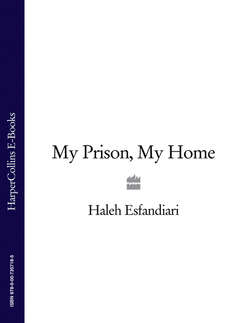Читать книгу My Prison, My Home - Haleh Esfandiari - Страница 9
THE PASSPORT OFFICE
ОглавлениеThe next day, a Sunday, we went to the passport office on Sattar Khan Avenue in west Tehran. Farhad and I entered separately through the men’s and women’s checkpoints, divided by the usual tatty curtain. The female guard on my side of the curtain conducted a superficial search of my purse and let me through. She was friendly and smiling. In the first decade after the revolution, smiles on the faces of mid-level civil servants were rare, deemed a sign of frivolousness, unseemly in an Islamic state. Thanks to President Khatami, who was elected on a reformist platform in 1997 and spent two four-year terms fighting the hard-liners, the scowls of government officials were no longer de rigueur. (Tehran’s wits referred to Khatami as Seyyed-e Khandan, the smiling cleric, a play on words in Persian that denoted both his sunny visage and his relative ineffectiveness.) During Khatami’s presidency, university students—men and women—mixed more freely; women fought for and secured more freedom in matters of dress; color returned to clothing on the streets; young girls moved about the city with hair showing beneath their headscarves, their nails polished, a touch of lipstick on their lips. I realized how miraculous it was, two years into Ahmadinejad’s far more restrictive presidency, that in a government office I was still encountering a smiling face.
Farhad and I headed straight for the director’s office, past the queues of people waiting to hand in or pick up forms. We ended up in a large room, where, we were told, the final approval for a new passport would be issued. On the wall, as in all government offices, were pictures of the founder of the Islamic Republic, Ayatollah Khomeini; the current supreme leader, Ayatollah Khamenei; and President Ahmadinejad. Three women, one in a black chador, two wearing the ample scarf known as a maghna’eh—which covers the forehead, hair, and ears; fits tightly under the chin; then drapes over the shoulders and upper back and chest—sat behind desks. The lone man in the room, obviously in charge, sat at his own desk, at some distance from the women. We carried our growing file from desk to desk. There was more signing, registering, paper shuffling, and waiting. Finally, the man in charge called my name and handed me two letters. I was to take one back to the Foreign Ministry and one to “the President’s Bureau.” Each of these two offices, in turn, had to give me letters approving my application for a new passport. “Once you get these letters, you should expect to wait at least two weeks before your passport can be issued,” he said.
I was shattered. I had been told it would only take three days. But far more important, I knew that “the President’s Bureau” was a euphemism for the Ministry of Intelligence and Security. I was familiar with the ministry’s fearsome reputation. It was responsible for internal security, and was the regime’s political watchdog, its secret police. It harassed intellectuals, journalists, and even the mildest of dissidents; it made arrests. It had been responsible for disappearances, even assassinations. Still, I convinced myself this merely meant more forms and interviews and, certainly, more delays.
I was directed to see a Mr. Torabi in the same building. Farhad and I went downstairs, found the office marked President’s Bureau, entered rooms which turned out to be quite well furnished, and asked for Mr. Torabi. I do not know if this was his real name or a fictitious one, as was often the case with Intelligence Ministry officials I later encountered. Mr. Torabi was not there. When I went in the following day, he was not there, either. “You just missed him. He won’t be back till Wednesday,” I was told. I felt that I was being sent after black beans, as the Persian expression goes—being given the runaround.
At home, I canceled my airline reservation and once again telephoned Shaul. “There will be a two-week delay,” I told him. “We have to find someone who can expedite things.” In Iran, contacts—and money—are crucial in situations like mine. Shaul promised to make phone calls. Over the next four months, I would make, cancel, and remake these same airline reservations several times, each one a marker on the barometer of my rising, and then dashed, hopes.
